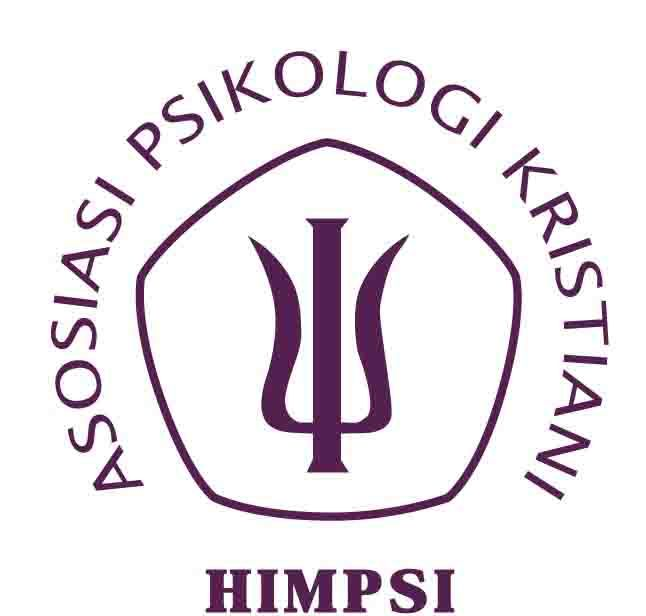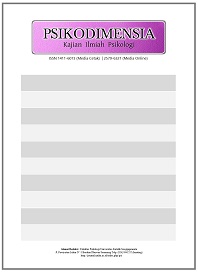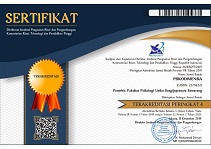Perbandingan Prediktor Kesehatan Fisik dan Psikis Kepala Sekolah Berdasarkan Jenjang Sekolah
Abstract
Abstrak
Tujuan penelitian ini adalah membandingkan kesehatan fisik dan psikis kepala sekolah, dan membandingkan prediktor kesehatan kepala sekolah (sosio-demografi, situasi kerja, informasi kesehatan, promosi kesehatan, persepsi terhadap pentingnya kesehatan guru dan murid) berdasarkan jenjang sekolah. Partisipan penelitian ini adalah 234 kepala sekolah. Pengambilan data menggunakan skala Dadaczynski dkk. (2021). Analisis data dengan menggunakan 1) ANAVA untuk membandingkan kesehatan kepala sekolah pada berbagai jenjang sekolah, 2) Split data dan regresi untuk melihat prediktor kesehatan kepala sekolah pada berbagai jenjang sekolah. Hasil analisis data menunjukkan kelemahan/kecacatan kepala sekolah pada sekolah lain-lain berbeda dari kepala SD, SMP, dan SMA/SMK, serta terdapat perbedaan prediktor kesehatan kepala sekolah pada berbagai jenjang sekolah. Kesimpulannya, perbedaan hasil penelitian ini dengan penelitian sebelumnya kemungkinan disebabkan banyaknya sub bagian pada variabel yang diteliti.
Kata Kunci: Prediktor, kesehatan kepala sekolah, jenjang sekolah
Abstract
The purposes of this study were to study the differences of the physical and psychological health of principals and to compare their predictors (socio-demographies, work situation, health information, health promotion, perception of the importance of teacher and student health) by types of schools. The participants of this study were 234 principals. Data collection used a batterey scale from Dadaczynski et al (2021). Data was analyzed used 1) ANOVA to compare the health of principals in various types of schools, 2) Split data and Regression Analysis to see the effect of the predictors on the health of principals among various schools. The results showed that the weaknesses/disability of principals in other schools were different from those of the principals of Elementary Schools, Junior High Schools, and Senior High Schools/ Vocational Schools, and there were different predictors of principals’ health in various types of schools. The conclusion is differences between the results of this study compared to those of other studies was probably due to the large number of sub-sections on the variables studied.
Keywords: Predictors, principal's health, school level
Keywords
Full Text:
PDF (Bahasa Indonesia)References
Atay, E., Goktas, S., Emiral, G.O., Dagtekin, G., Zencirci, S.A., Aygar, H., Arslantas, D., & Unsal, A. (2018). The health literacy level and eating behaviours of the teachers working at the city center of Eskisehir Turkey. International Journal of Research in Medical Sciences, 6 (1): 27-34. http://dx.doi.org/10.18203/2320-6012.ijrms201 75707
Backstrom, I., Eriksson, L., & Lagrosen, L., (2012). A health-related quality management approach to evaluating health promotion activities. International Journal of Quality and service Sciences, 4(1): 76-85.
Bogaert, I. De Martelaer, K., Deforche, B., Clarys, P., & Zinzen, E. (2014). Associations between different types of physical activity and teachers’ perceived mental, physical, and work-related health. BMC Public Health, 14 (534).
Brunette, C. (2017). Feel Healthy, how teacher personal health beliefs influence roles for promoting Student Health. International Journal of Health Promotion and Education, 55 (5-6): 243-258. http://dx.doi.org/10.1080/14635240. 2017.1372692
Chen, Y-Y., Li, C-M., Liang, J-C., Tsai, C-C. (2018). Health Information Obtained from the Internet and Changes in Medical Decision Making: Questionnaire Development and Cross-Sectional Survey. Journal of Medical Internet Research, 20 (2). http://www.jmir.org/2018/2/e47/
Dadaczynski, K & Paulus, P (2015) Healthy Principals-Healthy Schools? A Neglected Perspective to School Health Promotion. In V Simovska dan P. Mannix -McNamara (Eds). Schools for Health and Sustainability.
Dadaczynski, K., Okan, O., & Messer, M. (2021). Covid-19 Health Literacy School Principals Survey (COVID-HL: School Principal): Questionnaire and Scale Documentation. Public Health Centre Fulda (PHZF) at Fulda University of Applied Sciences & Interdiciplinary Centre for Health Literacy Research (IZGK) at Bielefeld University. Https//doi.org/10.4119/unibi/2952552
De Simone, S. Cicotto, G., & Lampis, J. (2016). Occupational stress, job satisfaction and physical health in teachers. Rev.Eur.Psychol.Appl. http://dx.doi.org/10.1016/j.erap.2016.03.002
Domitrovich, CE., Bradshaw, CP., Berg, J.K., Pas, E.T., Becker, K.D., Musci, R., Embry, D.D., & Ialongo, N. (2016). How do School-Based Prevention Programs Impact Teachers? Findings from a Randomized Trial of an Integrated Classroom Management and Social-Emotional Program. Society for Prevention Research.
Froese-Germain, B. & Riel, R. (2012). Understanding Teachers’ Perspective on Student Mental Health. Canadian Teachers’ Federation
Glowacki, E.M., Centeio, E.E., Van Dongen, D.J., Carson, R.L., & Castell, D.M. (2016). Health Promotion Efforts as Predictor Physical Activity in Schools: An Application of the Diffusion of Inovasion Model. Journal of School Health, 86 (6): 399-406
Jung, S.H. & Kim, D-H. (2017). Health Perception, Health Status and Health Promotion Behaviors of Elementary School Teacher. J Korean Soc Sch Health, 30 (3), 355-364. https://doi.org/10. 15434/kssh.2017.30.3.355
Kosholap, A., Maksymchuk, B., Branitska, T., Martynets, L., Boichenko, A., Stoliarenko, O., Matsuk, L., Sorovov, O., Stoliarenko, O., & Maksymchuk, I. (2021). Neuropschological Bases of self-Improvement of Own Physical Health of Future Teachers in the Course of University Education. BRAIN. Broad Research in Artificial Intelligence and Nuroscience, 12(3), 171-190. https://doi.org/10.18662/brain/ 12.3/226
Kumar, D & Deo, JM (2011). Stress and Work Life of College Teachers. Journal of The Indian Academy of Applied Psychology, 37, 78-85
Liu, Y-B., Liu, L., Li, Y-F., & Chen, Y-L. (2015). Relationship between health Literacy, Health-Related Behaviors and Health Status: A Survey of Elderly Chinese. International Journal of Environmental Research and Public Health, 12: 9714-9725.
Lowry, C., Stegeman, I., Rauch, F., & Jani, A. (2022). Modifying the school determinants of children’s health. Journal of the Royal Soeciety of Medicine, 115 (1): 16-21.
McKenzie, T.L. & Lounsbery, M.A.F. (2013). Physical Education Teacher Effectiveness in a Public Health Context. Research Quaterly for Exercise and Sport. 84: 419-430.
Mirzaei, S., Bafghi, M.J.A., & Zare, K. (2016). Examining the Relation of Health Literacy Level and Health Information Search Method with General Health of Teachers of Jahrom City Schools in 2016. International Journal of Advances in Science Engineering and Technology, 4(3): 1-8
Penugasan Guru Sebagai Kepala Sekolah, Peraturan Menteri Pendidikan, Kebudayaan, Riset, dan Teknologi Republik Indonesia nomor 40 tahun 2021 (2021). https://lppksps.kemdikbud.go.id/ upload/unduhan/Salinan_Permendikbudristek_Nomor_40_Tahun_2021_CAP.pdf
Sadeghi, K, & Khezrlou, S. (2016). The experience of burnout among English language teachers in Iran: self and other determinants. Teacher Development. An international journal of teachers’ professional development. http: dx.doi.org/10.1080/13664530.2016.1185028
Scheuch, K., Haufe,E., Seibt, R. (2015). Teachers’ Health. Deutsches Arzteblatt International. 112: 347-356. DOI: 10.3238/arztebl.2015.0347
Seibt, R., Matz, A., Hegewald, J., & Spitzer, S. (2012). Working conditions of female part-time and full-time teachers in relation to health status. Int Arch Occup Environ Health, 85: 675-687. DOI 10.1007/s00420-011-0715-7.
Sun, W., Wu, H., & Wang, L. (2011). Occupational Stress and Its Related Factors among University Teachers in China. Journal of Occupational Health, 53, 280-286.
Tang, J.J., Leka, S., & MacLennan, S. (2012). The psychososial work environement and mental health of teachers: a comparative study between the United Kingdom and Hong Kong. Int Arch Occup Environ Health. DOI 10.1007/s00420-012-0799-8
Tsigilis, N., & Zournatzi, E. (2011). Burnout among physical education teachers in primary and secondary schools. International Journal Humanities and Social Science, 1(7): 53-58
Utami, MSS., Hernawati, L., Goeritno, H., & Mayang, Y. (2022). Kesehatan Kepala Sekolah di Masa Pandemi Covid-19 dan Faktor-faktor yang Memengaruhinya. Laporan Penelitian. Fakultas Psikologi Unika Soegijapranata, Semarang
Vilchez, JA., Kruse, J., Puffer, M., & Dudovitz, RN (2021). Teachers and School Health Leaders’ Perspectives on Distance Learning Physical Education During the COVID-19 Pandemic. Journal of School Health, 91 (7): 541-549
Yue, P., Liu, F., & Li, L. (2012) Neck/shoulder pain and low back pain among school teachers in China, prevalence and risk factors. BMC Public Health, 12 (789).
DOI: https://doi.org/10.24167/psidim.v21i1.4470
Print ISSN : 1411-6073 | online ISSN : 2579-6321 View My Stats

This work is licensed under a Creative Commons Attribution 4.0 International License.




















